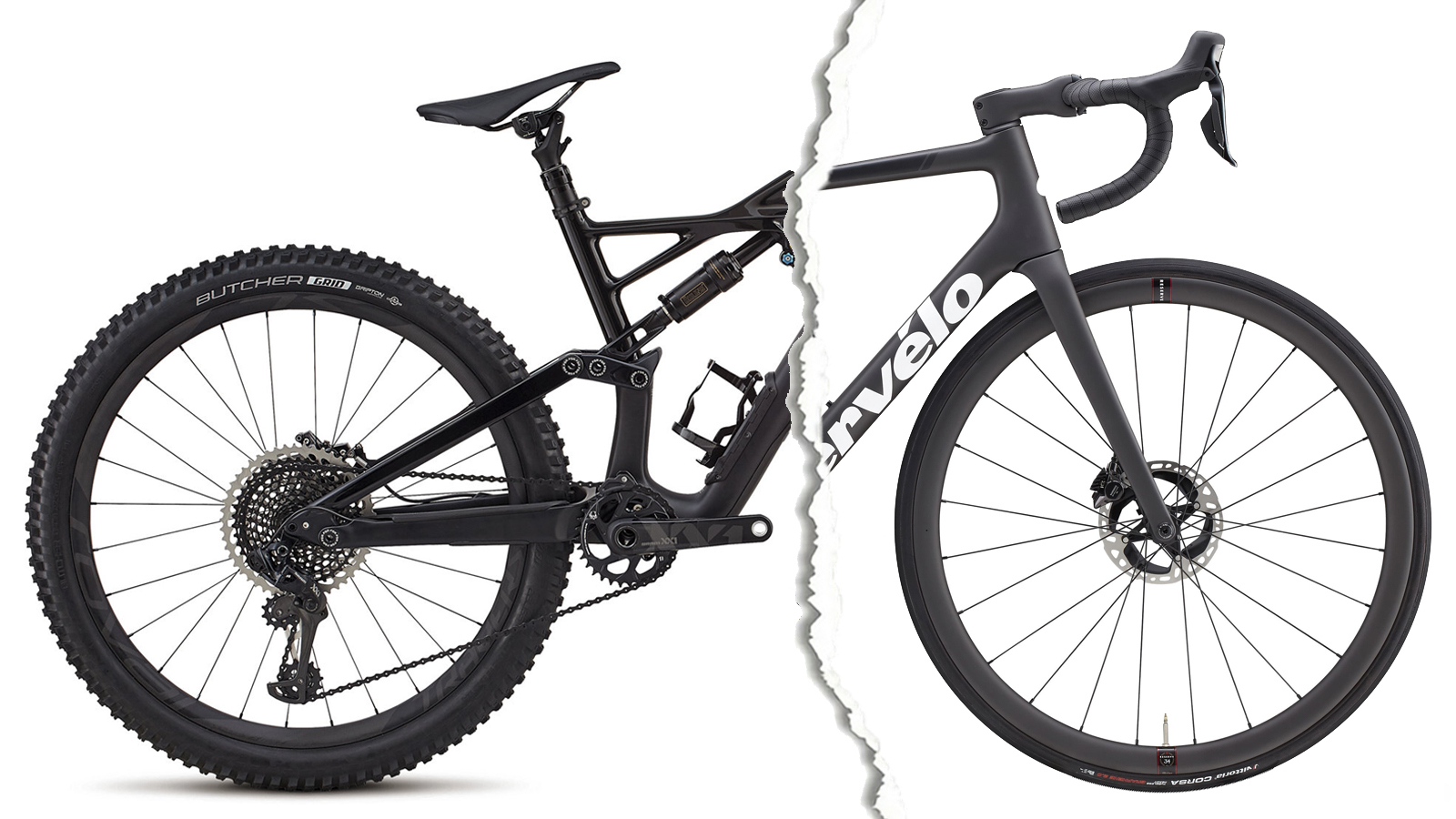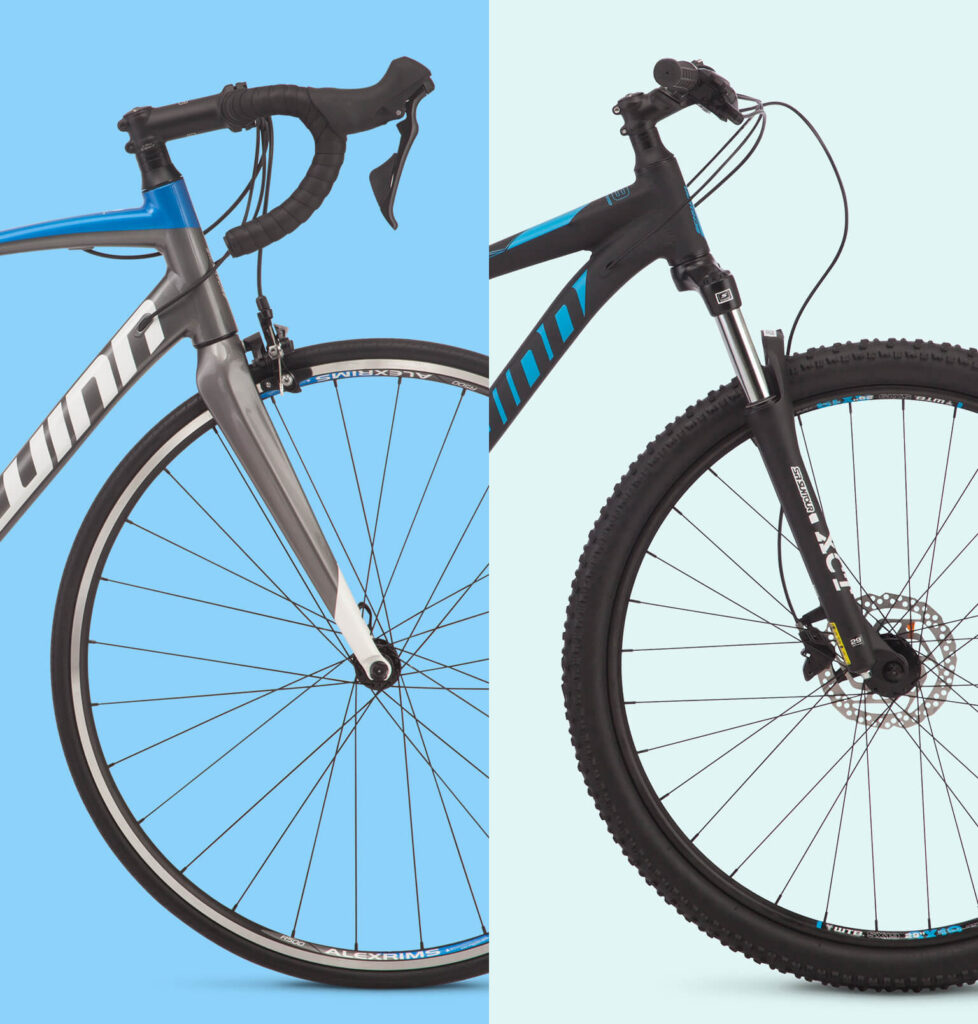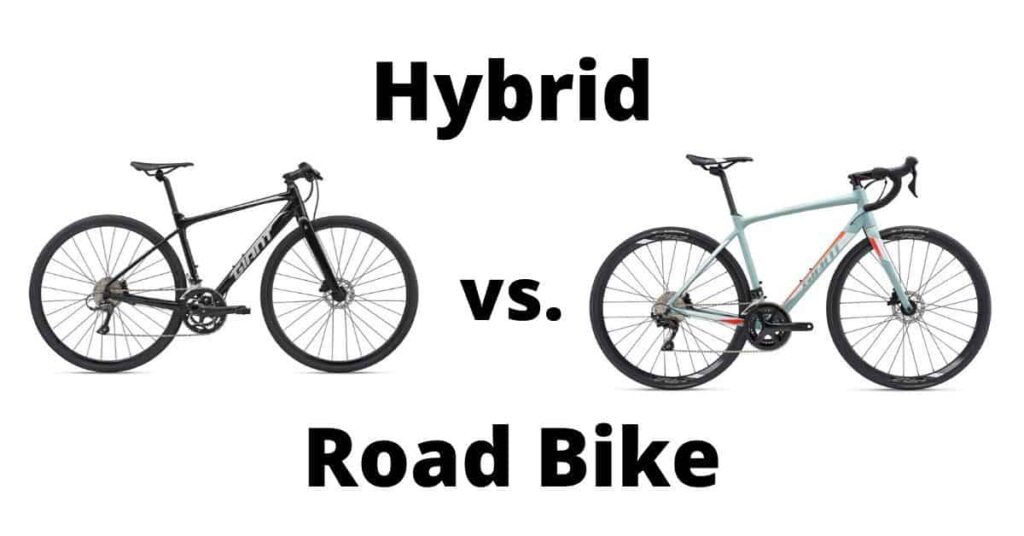Mountain bike vs road bike: compare off-road trails vs paved speed. Learn which bike suits your terrain, riding style, and performance needs.
This decision can feel daunting, especially when you’re eager to hit the trails or the open road. Each type of bike offers unique experiences and caters to different riding styles.
Whether you’re dreaming of rugged terrains or smooth highways, understanding the key differences can help you choose the perfect companion for your cycling adventures.
Imagine the thrill of making the right choice, where every ride feels just right. Ready to discover which bike matches your lifestyle and riding goals?
Let’s dive into the details that matter most to you.
Mountain Bike Vs Road Bike: Bike Basics

Credit: www.cyclingnews.com
Mountain bikes have thick tires and its handle rough paths well. Road bikes are different and its have thin tires. This helps them go faster on smooth roads. Mountain bikes have strong frames. They need to handle bumps and rocks. Road bikes have light frames.
This makes them easy to pedal on flat surfaces. Handlebars are also different. Mountain bikes have flat handlebars. This gives better control. Road bikes have drop handlebars. They help riders lean forward and go faster. Each bike design serves a special purpose.
Mountain bikes are best for off-road trails. They love dirt, mud, and hills. Their tires grip the ground well. Road bikes are not for rough trails. They are perfect for city roads and highways. Their tires roll smoothly on pavement. Mountain bikes face steep, rocky paths. Road bikes speed along flat, long roads.
Performance Factors of Mountain Bike and Road Bike

Credit: m.youtube.com
Road bikes are made for speed. They have thin tires and a light frame. This helps them move fast on smooth roads. Mountain bikes have wide tires. They are made for rough paths. This makes them slower on roads.
Efficiency is key for road bikes. Less energy is needed to ride them. Mountain bikes need more effort. They are built for strength. Choose road bikes for long rides. Mountain bikes for rough trails. Each bike has its own strengths.
Mountain bikes offer better control on rocky paths. Their sturdy frames help in tough spots. Road bikes excel on smooth roads. They are easy to steer in cities. Wide handlebars in mountain bikes provide stability. Narrow handlebars in road bikes are great for speed. Each bike suits different terrains.
For rocky trails, mountain bikes work best. On roads, road bikes are ideal. Choose wisely based on your route. Safety and comfort matter.
Comfort And Ergonomics
Mountain bikes offer a more upright riding position. This helps in rough terrains. It reduces strain on the back. Road bikes have a leaning forward position. This makes them faster. It’s ideal for smooth roads. Some riders feel discomfort. Especially during long rides. Choose based on your comfort.
Mountain bikes have strong suspension systems. They absorb shocks from uneven paths. This provides a smoother ride. Road bikes lack suspension. Riders feel every bump. On smooth surfaces, vibrations are minimal. Mountain bikes suit bumpy trails. Road bikes suit paved roads. Comfort varies by terrain.
Durability And Maintenance
Mountain bikes offer rugged durability, handling rough terrains and weather with ease. Road bikes require less maintenance but demand smoother surfaces. Each bike type caters to different cycling needs and environments, influencing their upkeep and longevity.
Wear And Tear
Mountain bikes face rough trails and steep paths. They need strong parts to last. Road bikes cruise on smooth roads. They have lightweight parts for speed. Both bikes wear out. But mountain bikes face more bumps and scratches. Sturdy tires and frames help them last. Road bikes need care, too. Potholes and rain can wear them down. Both bikes need regular checks.
Repair And Upkeep
Regular care keeps bikes safe and smooth. Mountain bikes need special care after muddy rides. Clean them well to avoid rust. Road bikes need chain oil and tire checks. Worn parts can cause problems. Keeping a tool kit helps with quick fixes. A small repair can save a trip. Always check brakes and gears. Safe riding needs good bikes.
Cost Considerations
Mountain bikes often cost more due to durable frames and suspension systems. Road bikes usually have lighter frames, offering a budget-friendly option. Consider maintenance expenses when choosing between both types.
Initial Investment
Mountain bikes often have a higher price tag. They come with sturdy frames and advanced suspension. Road bikes can be less expensive. They focus on lightweight frames and speed. The cost can vary based on brand and features. Always check for quality and durability.
Long-term Expenses
Mountain bikes may need more maintenance. Their parts can wear out quickly. Riding on rough trails takes a toll. Road bikes might have lower upkeep costs. They stay on smooth roads. This means less wear and tear. Both bikes need regular tune-ups and repairs. Consider these costs for budgeting.
Suitability for Various Activities
Mountain bikes excel on rough trails and steep terrains, offering durability and control. Road bikes shine on smooth pavements, providing speed and efficiency. Both cater to different activities, ensuring a tailored experience for cycling enthusiasts.
Competitive Racing
Mountain bikes are tough and strong. They handle rough trails well. Road bikes are fast and smooth. They zip through flat roads quickly. Racers often choose road bikes for speed. Mountain bikes are ideal for off-road races. Both have unique benefits for racing.
Casual Riding
Mountain bikes offer a comfy ride on trails. They are great for exploring nature. Road bikes are good for city rides. They glide smoothly on paved paths. Each bike fits different casual ride styles. Choosing depends on the terrain you love.
Adventure Touring
Mountain bikes are sturdy for long trips. They are perfect for rugged paths. Road bikes are lightweight. They cover long distances efficiently. Touring requires a reliable bike. Mountain bikes suit adventurous journeys. Road bikes suit long, smooth rides.
Environmental Impact
Making bikes needs energy and materials. Mountain bikes use more metal. They have strong frames. Road bikes need less metal. They are lighter. Both bikes have rubber tires. Rubber takes long to break down. Factories also use paint and plastic. These can harm nature. Good factories try to be green. They use less bad stuff. This helps the earth.
Bikes can be eco-friendly. Mountain bikes last longer. They are built tough. Road bikes are smooth on streets. Both bikes can be fixed. This stops waste. Using bikes means less pollution. Cars make dirty air. Bikes are cleaner. They keep the planet happy. Choose bikes to help the world. Save nature. Ride more. Waste less.
Personal Preferences of Mountain Bike and Road Bike

Credit: www.youtube.com
Choosing a bike depends on your lifestyle. Mountain bikes are great for adventure. They handle rough trails and rocky paths. Road bikes suit city life. They glide on smooth roads and paths. Think about where you ride most.
Mountain bikes are sturdy and tough. Perfect for exploring nature. Road bikes are sleek and fast. Ideal for city commuting. Your choice reflects your daily routine and surroundings.
Mountain bikes have a rugged look. They seem ready for action. Their thick tires and sturdy frame are eye-catching. Road bikes are elegant and sleek. Their thin tires and lightweight frame attract city riders. Both types have unique styles. Think about what appeals to you visually.
Each bike style has its charm. Some prefer the bold look of mountain bikes. Others love the streamlined design of road bikes. Consider what looks best to you.
FAQs
Which Is Better, A Road Bike Or A Mountain Bike?
Choosing between road bikes and mountain bikes depends on usage. Road bikes excel on paved surfaces and speed. Mountain bikes are ideal for off-road trails and rugged terrains. Consider terrain, comfort, and purpose to decide which suits your needs better.
Both offer unique benefits tailored to specific activities.
Can A Mountain Bike Be Used As A Road Bike?
Yes, a mountain bike can be used on roads. It may feel heavier and slower than road bikes. Opt for smoother tires for better speed and comfort. Adjust the seat height for an efficient ride. Mountain bikes offer durability and versatility for casual road cycling.
What Are The Disadvantages Of A Mountain Bike?
Mountain bikes can be heavy and harder to pedal on flat surfaces. They often require frequent maintenance. Tires wear quickly on paved roads. Suspension systems add complexity and cost. Not ideal for long-distance road cycling.
Mountain Bike Vs Road Bike: Which One Is Best?
A mountain bike works best on rough trails, hills, and rocky paths. It has thick tires, strong brakes, and a sturdy frame to handle bumps and dirt. A road bike is built for speed on smooth roads. It has thin tires and a light frame, making it easy to ride fast and far. If you enjoy off-road fun, choose a mountain bike.
If you ride mainly on streets or want to go faster, pick a road bike. The right choice depends on how and where you plan to ride. Both offer a great way to stay active and enjoy cycling.



